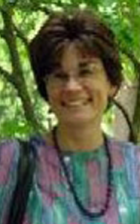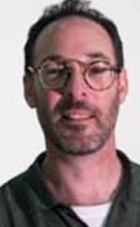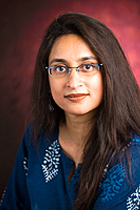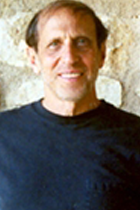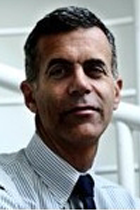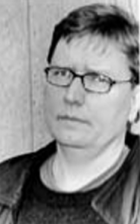
History
József Böröcz
Professor
Department of Sociology
School of Arts and Sciences
Key topics: Historical sociology, comparative sociology, global structures, social change, economic discourse
József Böröcz is an associate professor of sociology at Rutgers University. He is also a member of the Institute for Political Science and the Hungarian Academy of Science in Budapest. In 2006, Böröcz received the Knight's Cross of the Medal of…
... read moreSerena Connolly
Associate Professor
Classics
School of Arts and Sciences
Key topics: History of ancient Rome; ancient Mediterranean food; ancient science and technology
Serena Connolly, Ph.D. (Yale), is a historian of ancient Rome with research and teaching expertise in the history of women, enslaved individuals, and non-elites, as well as the political history of Rome under the emperors. She has also published…
... read moreBarbara Cooper
Professor
Department of History
School of Arts and Sciences
Key topics: Culture and political economy, gender, religion, family life, Niger, West African Sahel
Barbara Cooper, Ph.D., is a professor of history. She is interested in the intersections between culture and political economy, focusing upon gender, religion, and family life. Drawing upon archival sources as well as oral interviews in the Hausa…
... read moreJeffrey Friedman
Professor of Dance Studies
Dance Department
Mason Gross School of the Arts
Key topics: TOPIC SET 1: Dance history topics on a variety of historical eras and geographic locations such as pre-historic dance, Greek/Roman dance, Medieval, Renaissance and Baroque dance; The Romantic and Russian Classical Ballet; Sergei Diaghilev and the avant garde Russian Ballet. Isadora Duncan and the foremothers of modern dance such as Martha Graham/Doris Humphrey/Charles Weidman/Jose Limon and Alwin Nikolai. German modern dance and its influence on American modern dance; Jewish women's Leftist Dance in the 1930s. Avant garde post-modern dance in the 1960s and 70s. African and African diasporic dance, especialy focusing on dance by enslaved Africans in the American South; the development of Haitian voudun (often called "voodoo") and Afro-Brazilian capoeira and sacred orixa dances of candomble. Asian dance forms, especially in regards to the effects of colonialisims, including Balinese, Filipino, Korean and Japanese dance (including Noh and Kabuki dance-theater); Middle-eastern belly dance, the Turkish Whirling Dervish dance, and the effects of Orientalist ideologies; Hawai'ian hula (sacred, touristic and politically-resistant forms) and New Zealand Maoir indigenous dance forms.
TOPIC SET 2: Jeff also specializes in oral history interviews with dancers and has a 30-to-45 -minute lecture that includes a short dance-theater performance of his oral histories called "Muscle Memory." For more adult audiences, he also performs a more advanced version of this lecture titled "The Eros of Oral History," discussing his innovative approach to oral history AS an embodied performance, citing cognitive linguistics.
TOPIC SET 3: Jeff has also branched out to include lecture topics on dance and disability, speaking to issues of aging and chronic illness, with a particular focus on Parkinson's disease and dance; as well as theories and discussion on why dance performance is ideal for "normalizing" the disabled body. This lecture can include a very short 10-minute "mini-dance class" that focuses on increasing brain plasticity through shorted seated movement sequences.
…
... read moreAngus Gillespie
Professor
Department of American Studies
School of Arts and Sciences
Key topics: The Legend of the Jersey Devil: In 1735, Mother Leeds was about to deliver her thirteenth child. Feeling tired and weary of the burden, she cursed the unborn child. According to the folklore, she gave birth to the devil’s child at their home in the Pine Barrens. Today, the tale of Jersey Devil is often discussed as just that – a tale. However, during the time of the fabled Jersey Devil’s reign of terror, South Jersey residents were truly frightened. How the accounts were reported on and the folklore that developed will be discussed during this session.
Jersey’s Most Famous Road, the Turnpike: Think back to your last Turnpike experience. For some, it’s an occasional ride, for others it’s part of the daily grind. Have you considered what it took to create that road? New Jersey was a pioneer in major highway innovation (the Turnpike even predates the interstate highway system). In this interactive discussion, participants will be encouraged to consider its execution, significance in travel, aesthetics, and impact and how it can be seen as an emblem of American ideas and values.
New York City’s World Trade Center: Today the Twin Towers of New York City’s World Trade Center stand only in our memory, an image that calls to mind sorrow and loss. But during the days that they straddled the skyline, the towers meant many things to many people. To the crowds of tourists who visited daily, they were a man-made wonder with a breathtaking view. To many architects, they were an aesthetic nightmare. And for thousands of everyday people, the towers were the bustling familiar place where they made their living eight hours a day.
A graduate of Yale and a Fulbright Scholar, Angus Kress Gillespie is Professor of American Studies at Rutgers University. He has appeared on National Public Radio, Good Morning America, and Larry King Live. He is also founder of…
... read moreShaun Illingworth
Director
Rutgers Oral History Archives, Department of History
School of Arts & Sciences
Key topics: Personal experiences of American veterans and home front participants in WWII, Korea, Vietnam, the Cold War, and more; New Jersey 20th Century history; oral history general information and workshops
Shaun Illingworth, MLIS, is the director of the Rutgers Oral History Archives (ROHA). As webmaster for the #15 oral history website in the world, he has developed an online repository featuring tens of thousands of pages of fully transcribed,…
... read moreTia Kolbaba
Associate Professor
Department of Religion
School of Arts and Sciences
Key topics: Early Christianity, New Testament, history of Christianity before the Reformation, Christian traditions, Christian holy war (crusades and crusading), Greek Orthodoxy, Greek Orthodox relations with other churches.
Tia Kolbaba studies early and medieval Christianity, with special emphasis on the Greek-speaking Eastern Church. She is interested in relations between Orthodox and Catholic Christians, as well as relations among various religions in general. Her…
... read moreDeepa Kumar
Professor
Department of Journalism and Media Studies
School of Communication and Information
Key topics: Race, class, and gender with a focus on Islamophobia or anti-Muslim racism, empire, neoliberalism, organized labor, and representations in culture and the media.
Deepa Kumar is a critical media studies scholar whose work is driven by an active engagement with the complex issues that characterize our era of globalization and war. Her first book, "…
... read moreGeorge Pieczenik
Associate Professor
Biochemistry and Microbiology
School of Environmental and Biological Sciences
Key topics: DNA, human genome, Nobel laureates I have known and how they think, patent litigation, biotech stocks and investments, RNA interference, America's educational system, The Theory of Genotypic Selection, Evolution of Epidemics (i.e. HIV).
George Pieczenik, Ph.D., has published with three Nobel laureates, including Sir Francis Crick, discoveror of DNA structure. He has worked with eight Nobel laureates and has published with more independent Nobel laureates than anyone in history.…
... read moreMichael Rockland
Professor Emeritus of American Studies
Department of American Studies (founder)
School of Arts and Sciences
Key topics: Popular culture, mobility, American ethnicity, American Jewish literature, issues in literature to film adaption, American foreign policy, individualism and communitarianism in American life, New Jersey and the state's 350th anniversary
Michael Aaron Rockland, Ph. D., is a professor and founder of the Department of American Studies and a keynoter for the National Trust for Historic Preservation. A graduate of Hunter College and University of Minnesota, he joined Rutgers in 1969…
... read moreEugene White
Professor II
Department of Economics
School of Arts and Sciences
Key topics: Financial markets, stock market and other booms and busts, regulation of the financial industry, monetary and financial history
Eugene N. White, Ph.D., is a professor of economics at Rutgers University, a research associate of the National Bureau of Economic Research (NBER) and the co-editor of the CIF Series in Financial and Economic History (Yale…
... read more
